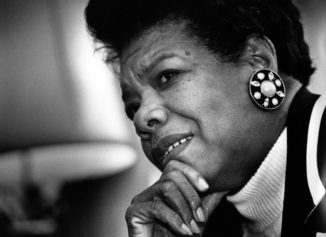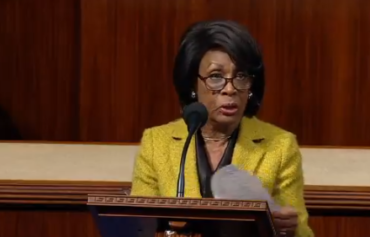A little more than a year after the Martin Luther King Jr. Memorial was dedicated in Washington, D.C., National Park Service officials have agreed to remove an inscription that caused quite a stir among the late civil rights leader’s supporters.
Critics, including Washington Post opinion writer Rachel Manteuffel and author Maya Angelou, said a paraphrased quote – “I was a drum major for justice, peace and righteousness” – not only took King’s remarks out of context, but, in Angelou’s words, made him sound like “an arrogant twit.”
The original quote had been condensed because the designers and the foundation that raised funds to build the memorial said there wasn’t enough room to engrave the remarks in their entirety.
The inscription came from a sermon King delivered at Ebenezer Baptist Church in Atlanta just two months before he was assassinated.
In his remarks, King challenged what he called the “drum major instinct,” the impulse to be a showoff. The civil rights leader said that when it came time for his own eulogy he wanted to be remembered for his better instincts.
“Yes, if you want to say that I was a drum major, say that I was a drum major for justice. Say that I was a drum major for peace. I was a drum major for righteousness. And all of the other shallow things will not matter.”
In February, the Interior Department said the inscription would be replaced with the entire quotation, but on Tuesday, Interior Secretary Ken Salazar announced an agreement was reached to remove the abridged version completely and the space made to look like the horizontal “striations” or “movement lines” already on that side of the memorial.
The proposal must now go to the U.S. Commission of Fine Arts and the National Capital Planning Commission for review. Both bodies are major parties in the process of building monuments and memorials in the nation’s capital and nothing on the National Mall is built, renovated or remodeled without their signoffs.
“What we’re doing here is a viable solution to the problem,” Ed Jackson Jr., the executive architect o the project, told The Washington Post.
Jackson said had the original proposal “would have looked like a patch job for the life of the memorial.”
He told The Post, “The movement lines all over will have to be deepened. So that it’s not going to look like an error or correction, all of the movement lines will have to be deepened on both sides of the statue…That is the plan.”
After a bruising presidential campaign season in which candidate statements were taken out of context, used and abused for political gain, there is something gratifying about seeing a group of people who, individually, had every vested interest in not appearing wrong, come together to do the right thing.
The memorial’s foundation was built on an undercurrent of unease and finger pointing. The selection of Chinese master sculptor Lei Yixin was attacked by a group of black artists who said it was an insult that Lei was chosen over African-American artists. Lei was chosen in an international design competition and black sculptors were part of his team.
A black, female-owned construction firm played a major role in the building of the memorial and Jackson, the chief architect, is black.
When the memorial opened, some critics said King looked too angry; some said the statue did not look much like King at all and still others even criticized the color of the stone, saying it wasn’t vibrant or dramatic enough.
Even during the planning and construction phases there were tensions between the foundation and the National Park Service – which becomes the official caretaker of federal monuments and memorials once they are formally dedicated – over who would manage the revenues for the bookstore on the memorial grounds.
These and other issues were eventually smoothed out, but the abridged quotation continued to leave those involved with the memorial feeling a bit roughed up.
Harry Johnson, president and chief executive officer of the memorial foundation, as well as Christine King Farris, sister of the late civil rights leader, told The Post they were satisfied with the outcome. In a statement released by the Interior Department, Bernice King, King’s youngest daughter, also expressed support for the compromise.
It is a hopeful sign, perhaps, when a Washington fight over the image of a man of peace could actually manage to be settled peacefully.
Jackie Jones, a journalist and journalism educator, is director of the career transformation firm Jones Coaching LLC and author of “Taking Care of the Business of You: 7 Days to Getting Your Career on Track.”


